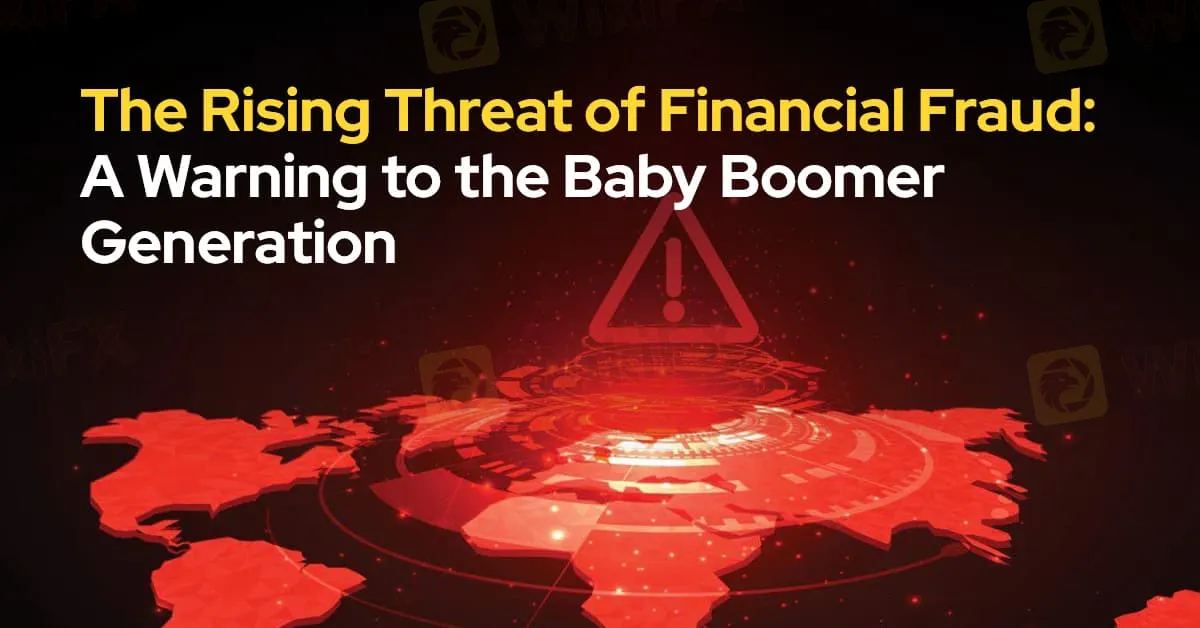The Rising Threat of Financial Fraud: A Warning to the Baby Boomer Generation
Abstract:Baby Boomers are under siege from advanced financial scams—find out how these sophisticated fraud tactics work and how you can shield yourself from becoming a victim.

Despite widespread awareness about financial scams, the evolving tactics of fraudsters have significantly impacted the Baby Boomer generation. According to the FBIs 2023 data, complaints to the Internet Crime Complaint Centre have risen by 14%, with losses reported by individuals aged 60 and above increasing by 11%.
Ed Mahaffy and Patrick Marcinko, financial planners at Go Banking Rates, have identified four prevalent scam methods and highlighted how advancements in technology, including artificial intelligence (AI), are contributing to the digital evolution in banking and investment sectors. Due to their lack of experience with digital technologies and frequent online activity, Baby Boomers are particularly vulnerable to these scams.

Fraudsters may pose as officials from agencies such as the IRS to steal money or personal information. Marcinko notes that many Baby Boomers are nearing retirement or are already retired, making them prime targets for IRS impersonation scams. It is crucial to remember that the IRS will never contact individuals via phone calls or text messages. The FBI reports a 32% increase in government impersonation scams last year. To avoid falling victim, refrain from providing payment information over the phone to unsolicited contacts.

Scammers may use technology to mimic the voice of someone familiar, making it increasingly difficult to detect such frauds. Marcinko explains that fraudsters might impersonate a child's voice to request money, complicating the verification process. If you encounter this scenario, hang up and call your child directly to confirm their safety.

Fraudsters pretending to be technical support personnel may deceive older adults by claiming their accounts have been compromised. They then persuade victims to download software that allows remote access to their computers. These scammers, posing as bank officials or other trusted figures, will instruct victims to transfer funds to a so-called “secure” account, which actually directs the money to the scammers. Mahaffy emphasizes that these “ghost hacker” scams typically involve receiving a call, text, email, or pop-up message instructing the victim to call a number for help, followed by downloading harmful software.

With the rise of online shopping, phishing scams targeting the Baby Boomer generation have surged. Scammers may impersonate retailers to send password reset emails, which, once the password is entered, are used to access and steal from the victims accounts. Additionally, phishing attacks might involve sending fake invoices or receipts. Opening these documents can trigger the automatic download of malicious software designed to steal personal information and access financial assets. Marcinko advises using multi-factor authentication wherever possible to enhance account security.
Mahaffy cautions against engaging with unfamiliar digital activities. Be wary of clicking on pop-ups or links, responding to unknown phone calls, or downloading unsolicited software. Staying vigilant and informed is essential to protecting oneself from these increasingly sophisticated financial threats.

Read more

Malaysian Trader Loses Over RM1.6 Million in Investment Scam via WeChat
A 56-year-old trader from Gombak, Malaysia, recently lost more than RM1.6 million in a sophisticated online investment scam orchestrated through the popular messaging application, WeChat.

Prop Trading vs. Algo Trading: How They Shape Modern Markets
This article will provide an overview of these two strategies, examining what sets them apart and why each has its place in today’s markets.

FCA Fines Metro Bank £16.7 Million for Lapses in Anti-Money Laundering Controls
The Financial Conduct Authority (FCA) has imposed a £16,675,200 fine on Metro Bank PLC due to critical shortcomings in its financial crime prevention systems. Between June 2016 and December 2020, Metro Bank’s inadequate transaction monitoring controls left more than 60 million transactions, valued at over £51 billion, exposed to potential money laundering risks.

Tradeweb and TSE Partnership Enhances Access to Japanese ETFs
Tradeweb and Tokyo Stock Exchange partner to improve ETF liquidity for global investors, offering streamlined access and competitive trading in Japan’s ETF market.
WikiFX Broker
Latest News
Is WesternFX a Reliable Broker?
ThinkMarkets Expands Mobile Integration with TradingView
Binance Ordered to Unmask Account Holder in €186,000 Crypto ‘Pig Butchering’ Scam
Will Trump’s Second Term Drive Economic Growth Through Tax Cuts?
InstaForex Lucky Trader Contest
What Happens if A Broker Goes Bust?
Why Do Experienced Traders Care About Forex Spreads?
ATFX Expands LATAM Presence with New Mexico Office
CySEC Warns against Public Review Websites
Former Alameda Executives Hand Over Assets in FTX Creditor Recovery Effort
Rate Calc
